Monday, Sept. 30, 2013 | 2 a.m.
Nevada Republicans may want to defund or repeal Obamacare, but the ship has already sailed.
The Affordable Care Act’s health care exchanges launch nationwide Tuesday, and Nevada is a national example of a state that has been leading the way in preparing for outreach and health insurance enrollment under President Barack Obama’s health care law.
To learn more
Rep. Dina Titus, D-Nev., is hosting several events about the law:
• Women’s Health Roundtable
Monday, Oct. 21, 2013
3 to 4 p.m.
Paradise Community Center
4775 S. McLeod, Las Vegas, NV 89121
• Small Business Town Hall
Tuesday, Nov. 5, 2013
10 to 11 a.m.
Location TBD
To RSVP, contact [email protected] or (702) 220-9823.
• Seniors’ Health Telephone Town Hall
Tuesday, Nov. 12, 2013
5 to 6 p.m.
Call (702) 220-9823 to register for the town hall.
But whether the law will actually improve the health of Nevadans at an affordable price is up for debate.
“This thing is not going to be as bad the Republicans say and as good as the Democrats say,” said Jim Wadhams, former Nevada Insurance Commissioner and lawyer at Fennemore Craig Jones Vargas. “It’s just going to be a new system.”
The health care marketplaces will offer insurance products that will include Obamacare’s new essential health benefits, including the provision that people with pre-existing conditions will not be denied coverage.
These exchanges will also be the primary vehicle through which Nevadans can comply with the law’s most controversial aspect: the mandate that people have insurance by Jan. 1, 2014, or face a financial penalty assessed on their taxes.
In Nevada, the launch of the Silver State Exchange and its web portal, NevadaHealthLink.com, will provide political observers, health care consumers and policy experts with apolitical ways to evaluate the success or failure of Obamacare.
Here are the main ways Nevadans can tell whether Obamacare is working:
Is the marketplace working? Will the Affordable Care Act actually provide “affordable” health insurance?
In Clark County, the health care exchange will offer 42 plans sold by three companies.
Those plans are available to everybody “regardless of your age, gender or any other factor,” said Jake Sunderland, public information officer for the Nevada Division of Insurance.
These plans will be less expensive than comparable plans sold in other parts of the state.
State officials are hoping 118,000 people will enroll in health insurance through the Silver State Exchange between October and March 2014.
But although the process has been compared to shopping for airfares online, it’s significantly more complicated than that.
Nevadans using the exchange will have to know and prove their annual income to see whether they qualify for federal Medicaid insurance or federal subsidies to get a discount on the monthly cost of an insurance plan.
Then, they’ll have to understand and weigh variables such as monthly premiums, co-pays, deductibles, and a new metal-tier system rating plans as bronze, silver, gold or platinum. In a bronze plan, the consumer pays more for health services whereas the insurance company foots more of the bill under silver, gold or platinum plans.
A consumer will have to judge cost, value and individual health concerns when deciding which plan to buy.
State officials estimate that the enrollment process could take anywhere from 30 minutes to an hour and a half.
“People are going to be pulling their hair out saying, ‘I thought this was supposed to easier,’” Wadhams said. “But at the end of the day, there will be people who are clearly better off.”
CJ Bawden, spokesman for the Silver State Exchange, said he wants to ensure the exchange has enough health care “navigators” and “enrollment assisters” on hand to help people with the complicated process.
“The biggest challenges right now are the time constraint(s), making sure we have enough in-person assisters out there,” Bawden said.
Hispanics are the largest group among the roughly 600,000 Nevadans who don’t have health insurance. So ensuring that population gets health insurance is another goal for the exchange.
To that end, the exchange has contracted with KPS3, an Reno-based advertising agency, which is airing advertisements in Spanish directing people to, the Spanish-language version of the Silver State Exchange.
The launch of that website, however, will be delayed until Nov. 15, Bawden said.
Observers say effective outreach to people who don’t understand English well will be critical for the success of Obamacare in Nevada.
“If we could simplify the procedure to enroll and make it as simple as possible and easy for somebody for whom English is a second language, it will help the whole health exchange,” said Jay Shen, a professor of health care administration and policy at UNLV.
Will enough healthy, young people enroll to make the exchange work?
One of the three insurance companies offering health insurance on the Silver State Exchange in Clark County is brand new. The Obama administration awarded a federal loan to the Nevada Health CO-OP to offer nonprofit, consumer-owned health care on the exchange.
But for that plan to flourish, it’ll need to attract young, healthy customers. The same goes for the Health Plan of Nevada and Anthem, the other two large insurance companies selling plans on the exchange in Clark County.
If these insurance companies can’t attract young people, they could be swamped with chronically ill customers whose health problems cause the company to dramatically increase the price of insurance, thus making the “affordable” part of the Affordable Care Act a dubious claim.
“They’ve got to pick up the healthy young folks,” Wadhams said.
So-called “young invincibles” might not want to buy health insurance because they deem themselves healthy already.
Given how crucial young, healthy people are, opponents of the health law have been running ads to discourage them from enrolling in Obamacare insurance plans. These ads feature young people in vulnerable positions who encounter a menacing Uncle Sam figure in doctors’ offices.
The ads urge young people to refrain from enrolling in insurance through the health exchanges, or “opt out” of Obamacare.
That’s an option.
Young people who opt out of the exchanges have other choices. They can take a risk, pay a tax penalty and pay for health insurance on an as-needed basis.
"The person who gets strep throat in the middle of winter will still get care," Wadhams said. "The strep throat will just be an out-of-pocket expense."
Rep. Dina Titus, D-Nev., called those ads “disgraceful” and “immoral,” saying instead she’s focused on educating people about the law.
As the congresswoman representing many uninsured Nevadans, she’s been hosting “not political, not partisan, just the facts ma’am” informational events in the Las Vegas area during which people can find out more about the law.
The Silver State Exchange also is using KPS3 to run TV ads encouraging young people to enroll in health insurance plans.
One features a young man who says “when it comes to soccer, I play hard or I don’t play at all. I’ll be OK.”
“I don’t have health insurance,” he says as the black and white camera pans closer to his face. “And that scares me.”
A similar ad features a young man who says, “I work hard and I play hard.”
“You know, my mom worries about me sometimes,” he says in the ad. “But I’m young and healthy; it’s all good. ... But I don’t have health insurance, and that scares her.”
These advertisements then advise Nevadans that “Nevada Health Link is here to protect you from a fine on your taxes” for not enrolling in an insurance plan.
While some states are using celebrities to encourage young people to get health insurance, Bawden said focus groups in Nevada resoundingly rejected the idea of famous people selling them health insurance.
“They wanted us to be serious,” he said. “We came up with a couple of ad campaigns that were pretty funny, but they said, ‘No, don’t joke about our health insurance.’”
Will there be enough doctors to see everybody who gets insurance?
All the health insurance plans offered on the Exchange are Health Maintenance Organization, or HMO, plans, Sunderland said.
That’s significant because these types of plans are usually less expensive but are more restrictive in terms of which doctors and health care professionals the insurance plan includes in its network.
“The doctors and hospitals will say, ‘You give me a volume of business, I’ll give you a bigger discount,’” Wadhams said.
But the health sector in Nevada hasn’t grown by leaps and bounds in order to handle hundreds of thousands of new clients who may go to doctors’ offices more often once they have health insurance to help them pay for the cost of care.
So wait times at clinics may increase statewide, Wadhams said.
Exchange officials acknowledge the issue but say they can’t solve the problem on their own.
“It’s not a problem that can be solved overnight,” Bawden said. “We can’t grow doctors.”
But, Shen said, the state can grant nurses and others greater leeway with providing care to patients in order to expand its pool of health care providers.
“They’re less expensive, their training time is shorter, and they can provide some routine care, freeing the physician to provide some complicated services,” he said.
Such a measure requires a change in state law. But if Nevada does nothing, the shortage of doctors could become worse in Nevada with the advent of Obamacare, Shen said.
When and how will we know whether the rollout of Obamacare is succeeding or failing in Nevada?
The federal government has already committed money to jump-start the Silver State Exchange, build its Nevada Health Link web portal, and pay for advertising and outreach. Whether the law will curtail health costs and provide better health outcomes for Nevadans may not be known for years.
But by the end of the year, political observers who hate or love the law can look at a few metrics to see how the law’s implementation is faring here.
First of all, are the state’s advertisements reaching Nevadans who don’t have health insurance?
“We’re looking at making sure 85 percent of our target market is aware of when, what, how and why enrollment in Nevada Health Link is important,” Bawden said. “We’re going to look at our metric after Dec. 15 to see our success level.”
By March 31, the state wants to have enrolled 118,000 in health insurance via Nevada Health Link or its Spanish-language equivalent, Enlace de Seguro Médico.
The state will be tracking enrollment, so it should know by April 2014 whether its met its goal.
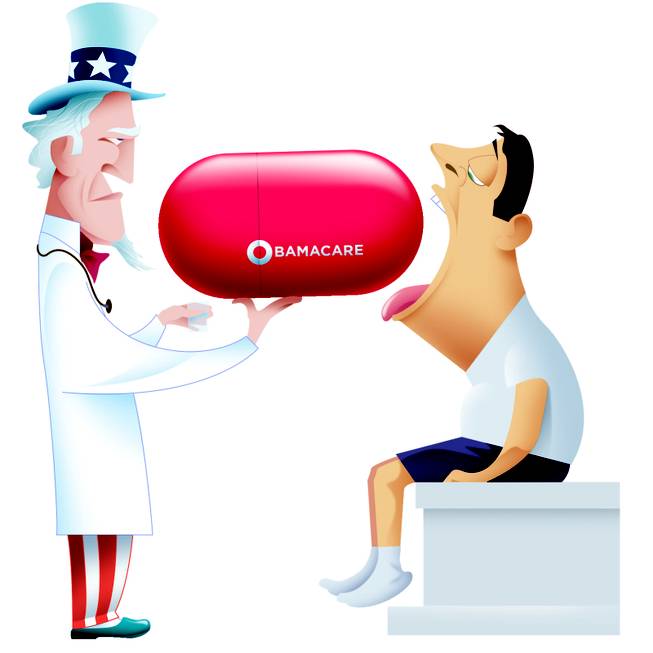

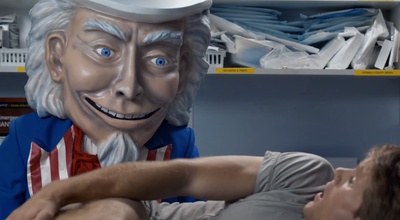
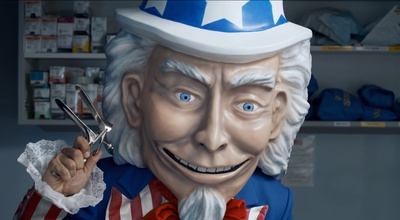
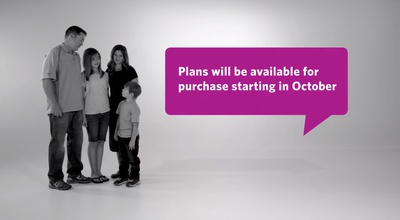
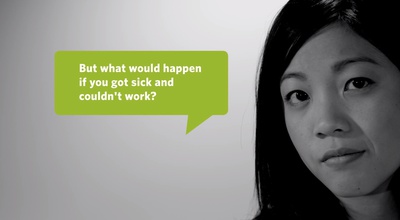

Join the Discussion:
Check this out for a full explanation of our conversion to the LiveFyre commenting system and instructions on how to sign up for an account.
Full comments policy